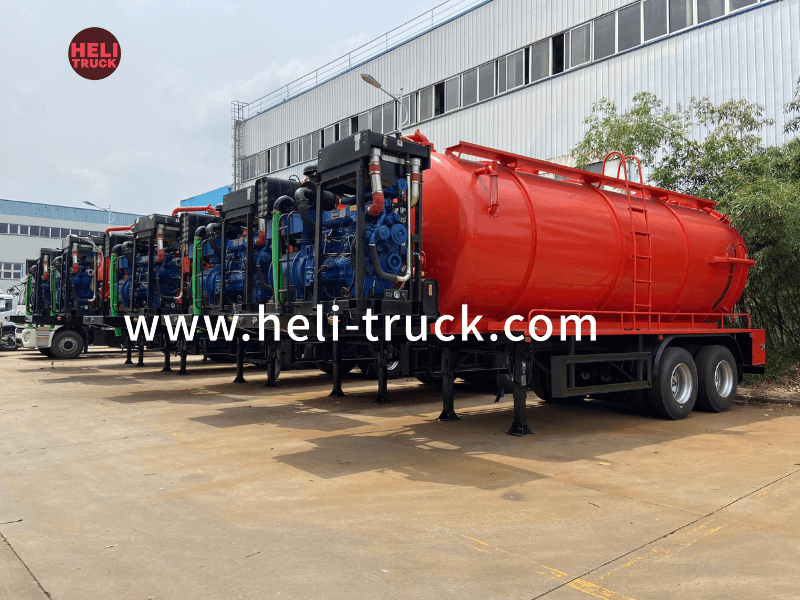Introduction
Waste management is a critical aspect of urban infrastructure, with garbage compactor trucks playing a crucial role in keeping our cities clean and hygienic. These specialized vehicles are designed to collect, compress, and transport solid waste efficiently. In this article, we will explore the design principles, engineering intricacies, and technological advancements behind garbage compactor trucks.
1. History and Evolution of Garbage Compactor Trucks
Garbage compactor trucks, also known as refuse collection vehicles, have a long history dating back to the early 20th century. The first compactor trucks were simple open-bed vehicles that required manual loading and unloading of waste. Over the years, advancements in technology and engineering have transformed these trucks into sophisticated machines capable of handling large volumes of waste effectively.
2. Types of Garbage Compactor Trucks
There are several types of garbage compactor trucks designed to cater to different waste management needs. The most common types include rear loader compactor trucks, front loader compactor trucks, side loader compactor trucks, and semi-automatic compactor trucks. Garbage truck waste transportation has its unique features and benefits, making them suitable for specific applications.
3. Key Components and Systems
Garbage compactor trucks consist of various components and systems that work together to collect and compact waste. Some of the key components include the compactor mechanism, hydraulic system, waste hopper, and control panel. The compactor mechanism is responsible for compressing the waste, while the hydraulic system provides the necessary power to operate the compactor.
4. Design Considerations
The design of garbage compactor trucks is crucial to their performance and efficiency. Factors such as payload capacity, compaction ratio, maneuverability, and safety features must be carefully considered during the design process. Engineers strive to optimize the design to maximize waste collection and compaction while ensuring the vehicle remains durable and reliable.
5. Innovations in Garbage Compactor Truck Design
Advancements in technology have led to several innovations in garbage compactor truck design. Automated compaction systems, GPS tracking, onboard diagnostics, and remote monitoring capabilities are some of the recent innovations that have revolutionized waste management operations. These technologies enhance efficiency, safety, and environmental sustainability.
6. Environmental Impact and Sustainability

Garbage compactor trucks play a significant role in promoting environmental sustainability by reducing the volume of waste sent to landfills. The compaction process minimizes the space occupied by waste, allowing for more efficient transportation and disposal. Additionally, some compactor trucks are equipped with emission control systems to reduce air pollution.
7. Challenges and Future Directions
Despite their benefits, garbage compactor trucks face challenges such as maintenance costs, operational inefficiencies, and regulatory compliance. To address these challenges, manufacturers are exploring new materials, alternative fuel options, and smart technologies to improve the performance and sustainability of these vehicles. The future of garbage compactor trucks is likely to be driven by innovation and environmental consciousness.
8. Case Studies and Success Stories
Several municipalities and waste management companies have successfully implemented garbage compactor trucks to enhance their waste collection and disposal processes. Case studies highlighting the efficiency gains, cost savings, and environmental benefits of using compactor trucks can serve as inspiration for other organizations looking to improve their waste management practices.
Conclusion
Garbage compactor trucks are indispensable tools in modern waste management systems, enabling efficient collection, compaction, and transportation of solid waste. The design and engineering of these trucks continue to evolve, driven by a commitment to sustainability, innovation, and operational excellence. By understanding the complexities of garbage compactor truck design, we can work towards creating cleaner, greener, and more sustainable cities for future generations.
